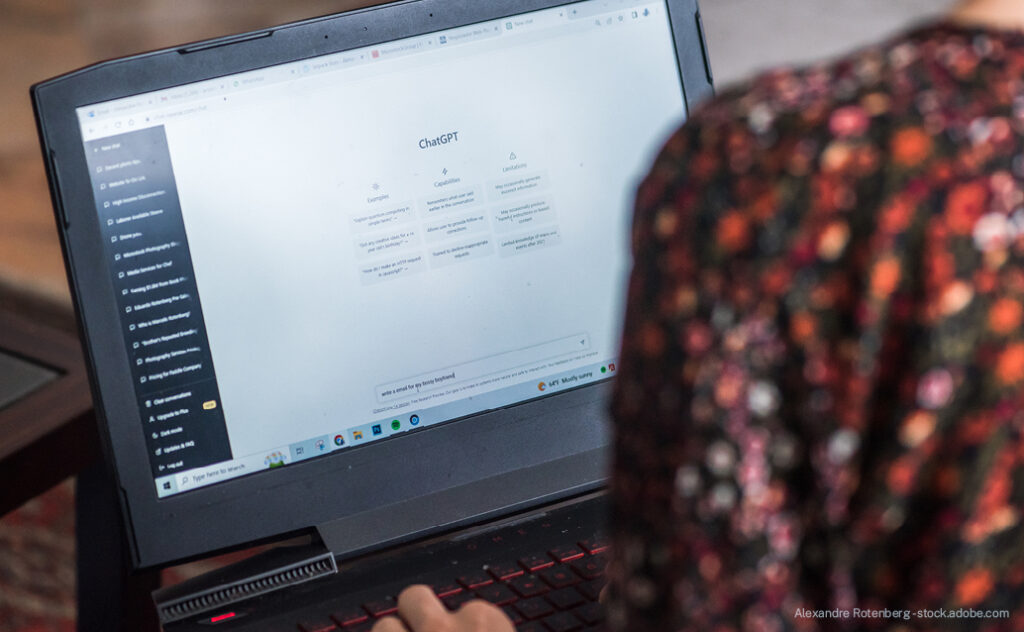
Artificial intelligence (AI) is rapidly changing workplaces, generating a lot of questions about workers’ roles and relevance as well as the ethics of using it. In education, the big discussion revolves less about educators becoming irrelevant and more about the perception that using AI is akin to cheating or plagiarism. But we can embrace the enormous power that AI can bring to our work. If you are an educational leader and you’re not using AI, you’re missing out on a valuable partner!
ChatGPT and other generative AI tools are powerful because they allow school administrators to create content; critique and improve content; compare information highlighting similarities and differences; summarize information; and identify patterns, insights and trends in text or data. So, what are some specific ways school leaders can be using AI?
AI can create letters, forms and speeches.
Have you ever needed to quickly create a message for parents to alert them about something before they hear it through the rumor mill? I once asked ChatGPT to generate a parent email to alert them about a safety incident at school with just a couple of details. Within seconds, it wrote an exemplary parent email that could be personalized and sent immediately. In another instance, ChatGPT created a perfect parent permission form to allow students to view an R-rated movie in their U.S. history classes. It knew to include the “why.” All I provided was the name of the movie!
AI can work recursively with you to improve upon its creations.
I asked ChatGPT to draft a high school graduation speech for a principal to deliver. It generated a boilerplate speech that was good but not special, so I told it a few facts about the senior class, like its senior year theme, and the next draft was much better. To use it, I’d want to play with it and make it my own, but I had a great starting point to build from.
AI can write curricula.
I was skeptical about asking AI for such a task, but I tried it out. Based on Common Core Standards, I asked ChatGPT for a unit of study and provided some parameters. It instantly selected texts according to my requirements (its choices even included diverse authors without being asked), identified seven grade-level standards, and coincided objectives, activities and assessments. The activities were varied and included reader response journals, literature circles, writing prompts and a Socratic seminar among other things. If I’m being honest, the unit was pretty well constructed!
But, is using AI ethical?
Like many others, I was concerned about the ethics of using AI to help with my work, so I asked ChatGPT if this was cheating or plagiarism. It told me that using ChatGPT is about leveraging available resources to achieve success, not cheating. And, as far as plagiarism goes, it told me that “as long as you modify and personalize the content to fit the specific needs and context of your school, including adding your own insights, details and voice, it’s considered ethical and appropriate usage… The key is to ensure that the final product reflects your own thoughts, intentions and style, even if you’ve drawn inspiration or guidance from external sources.”
While AI can be a powerful partner for helping you get your work done, you should be mindful of any AI usage guidelines and policies your school or school district might have. Outside of ensuring you stay within the boundaries of those policies, the best way to become familiar with AI is to start experimenting! Ask ChatGPT to do something for you. Change the way you ask it. Ask it to change or improve what it provides. You can even copy in something you wrote and ask it to edit and polish it. AI in education isn’t as scary as everyone makes it sound. In fact, AI could be an educational leader’s new BFF!
Your pathway to educational leadership starts with American College of Education. Learn more about our education programs here.

